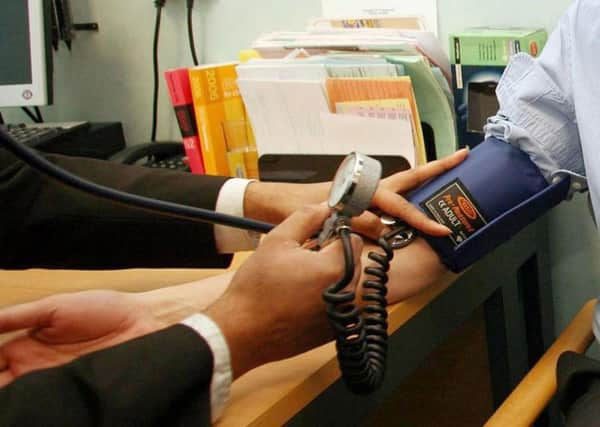Trainee doctors to be offered £20k to help resolve Blackpool's GP shortage


Currently the town’s 22 surgeries have vacancies for 15 doctors – meaning more delays for people wanting appointments.
Blackpool’s high rate of poverty is partly blamed for deterring young doctors from taking up posts.
Advertisement
Hide AdAdvertisement
Hide AdThe town is among the seven areas in the country with the lowest success rates in filling GP vacancies.
Now Health Education England (HEE) is to give trainees a £20,000 lump sum at the start of their training placements if they take up a post in Blackpool and agree to remain in the town for at least three years.
Dr Amanda Doyle, chief clinical officer of NHS Blackpool Clinical Commissioning Group (GGC), today welcomed the move.
She said: “The difficulty is when you are recruiting young trainees, the big cities which are nearer the medical schools they trained at tend to be more attractive.
Advertisement
Hide AdAdvertisement
Hide Ad“Places that struggle to recruit but where training is deemed to be good are being allocated money.
“If we can get people here, they stay but the difficulty is getting people to come to Blackpool in the first place.
“All the factors associated with deprivation make the job more of a challenge and harder work for GPs.
“If you are working with a population with much poorer health, then the demands on GPs are much greater and obviously Blackpool has very poor overall health statistics.
Advertisement
Hide AdAdvertisement
Hide Ad“In Blackpool we are short of around 15 GPs out of 22 practices and obviously the impact of less doctors is people wait longer for appointments making it more and more difficult for surgeries to deliver services.
“The offer of a lump sum is a significant incentive for trainee doctors to choose Blackpool and we are already seeing inquiries being made.”
The money will be given out nationally to 109 candidates who train in the seven areas with the lowest GP training fill rates, including Lincolnshire, the Lake District and the Isle of Wight, as well as Blackpool.
Trainees who work in these areas will be given a £20,000 lump sum at the start of their training placements in August.
Advertisement
Hide AdAdvertisement
Hide AdSome people in Blackpool say they have had to wait up to three weeks for a doctor’s appointment.
Suzanne Forbes, 66, of Ribble Road, said: “I rang up for an appointment hoping to get one the week after but they said it would be three weeks.
“And if you want to see the same doctor, it is five or six weeks.”
Angie Buss, chairman of the New Revoe Residents Association, said: “I think a lot of people do have to wait a long time for appointments and GPs must be very stretched.
Advertisement
Hide AdAdvertisement
Hide Ad“And in a deprived area you get all the health issues which go with that.
“So I think an incentive to attract more trainee GPs to Blackpool would make a big difference.”
Dr Maureen Baker, chairwoman of the Royal College of GPs, said: “Across the country, GPs and our teams will make in excess of 370 million patient consultations this year – 60 million more than five years ago – yet our workforce has remained relatively stagnant.
“We simply don’t have the capacity to deal with this relentless demand, and research has shown that this is more pronounced in some areas than others.
Advertisement
Hide AdAdvertisement
Hide Ad“In areas that are particularly struggling to recruit GPs, often more remote areas, or those with high levels of deprivation, something needs to be done to make living and working there an attractive prospect to potential new recruits.
“This initiative is something that the College has been proposing for some time and we are pleased to see it being implemented.
“Similar schemes have worked really well for other careers, such as teaching, and we hope it will encourage new GPs to under-doctored areas in the best interests of providing safe care now and in the future, wherever our patients live.”